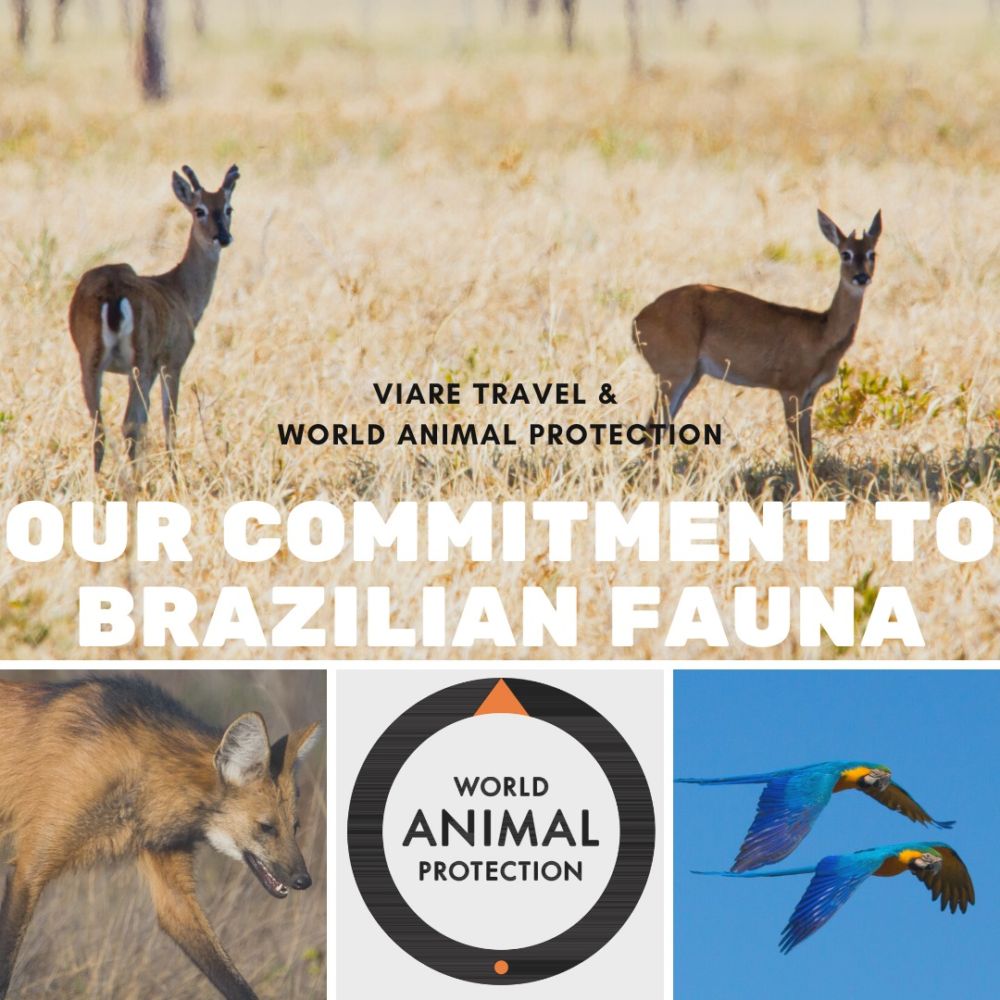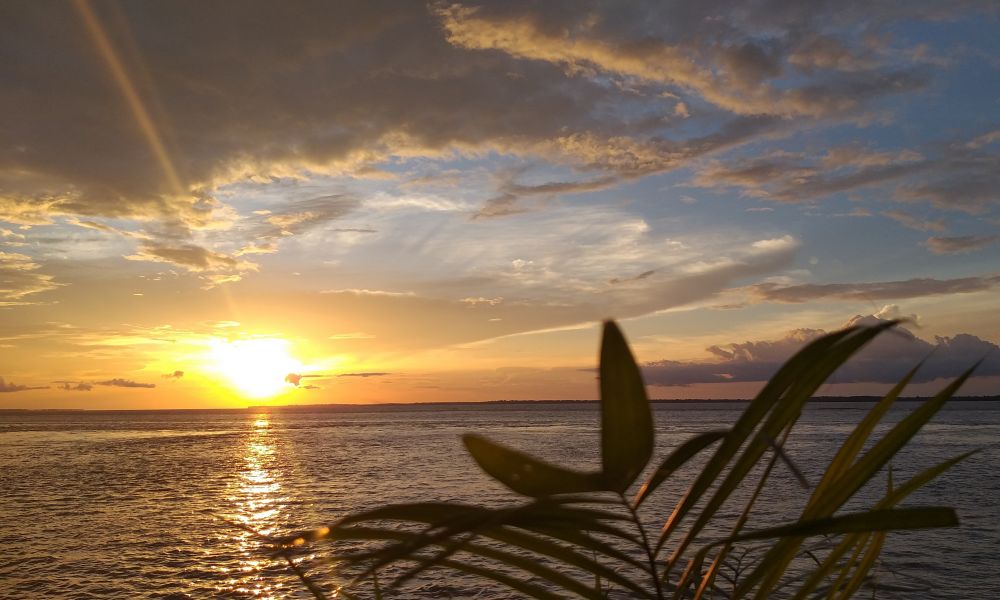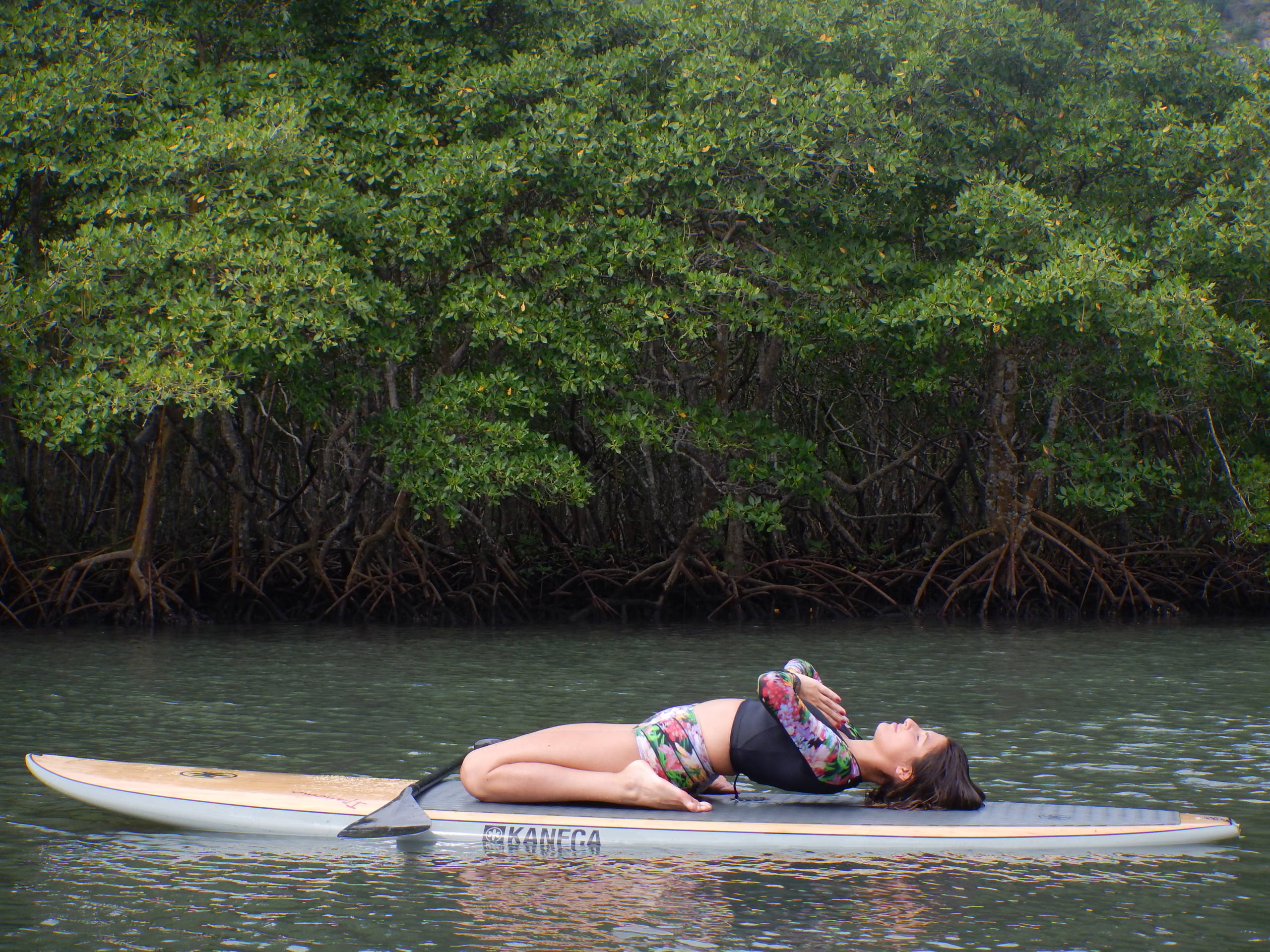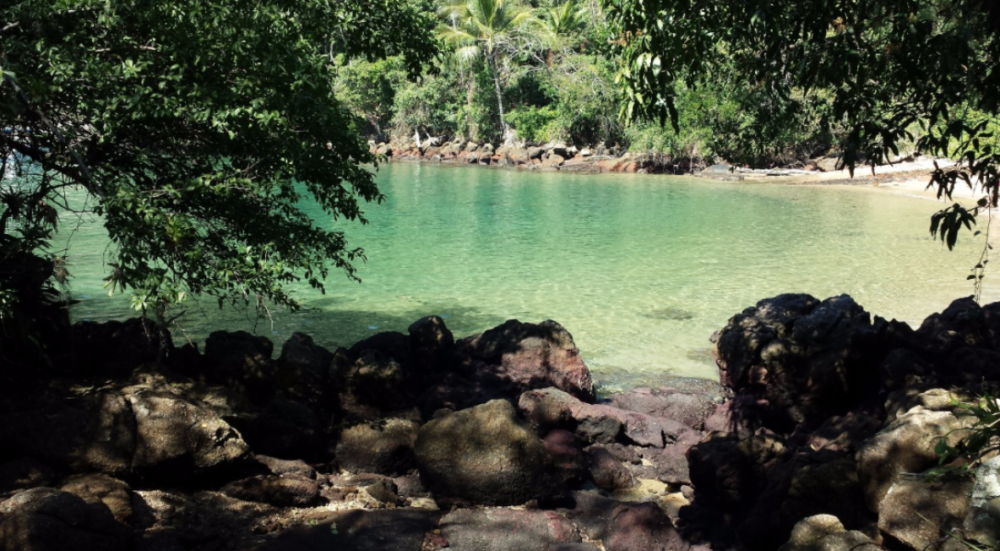Confession: I have participated in activities that were not fauna friendly.
I have helped feed river dolphins in the Amazon, been on a tour in the Pantanal where guides used bait for alligators to entertain guests – and I’ve sold these experiences too. But something in my gut had always told me this didn’t seem right. However, I seemed to continue to chug along, selling these excursions, until I started to see peers calling these experiences out.
Over the past several months, I have been in conversation with the World Animal Protection organization’s representatives in Brazil, to learn more about how I can promote more responsible fauna observation, what is and isn’t threatening to the different species, and also how I can educate travelers as well as tour providers to be more responsible.
Brazil is a country many travelers visit because of our fauna – we are home to many vulnerable species such as the hyacinth macaw, the maned wolf, the spotted jaguar and so many other endemic species present in our vast territory – and as an agency that promotes responsible tourism to Brazil, I would be remiss to not take on this task and make this commitment.

Starting today, we have signed an agreement with World Animal Protection, stating we will only be promoting these responsible experiences when it comes to fauna observation, and with my newly obtained education, I hope to inspire our clients and providers to do so as well.
Types of popular fauna-based activities we are no longer offering:
- Interactions with the pink river dolphin in the Amazon
- Backstage experience at Parque das Aves in Iguaçu Falls
- The offering of Pantanal and Amazon lodges which promote interaction with animals as “props” for photo opportunities (ex. sloths in the Amazon), or who offer bait to attract animals closer to guests (ex. caiman in the Pantanal) for their viewing pleasure.
Types of fauna-based activities we will continue to offer:
- Pantanal Jaguar spotting boat tours
- Horseback riding tours where horses are given ample space and time to roam (not limited exclusively to tourists)
- Fishing experiences with community members where the activity is a part of the cultural heritage and is done in season
- Excursions to like the Blue Macaw Project in Campo Grande, and the Projeto Tamar (Sea Turtle Project), throughout the Brazilian coast.
In short, we will continue to promote tourism where the conservation of species is promoted, as well as where animals are not exclusively “used” for tourism, and eliminate all activities which may be harmful to our local fauna’s well being, especially those targeting vulnerable species.
And since we cannot have our eyes on all our providers at all times, prior to travel, we will speak with clients about these principles, and encourage them to report any sort of behavior that seems prejudicial to vulnerable fauna.
Do you dream of seeing any particular species in the wild? Reach out so we can chat about this and how to most responsibly observe fauna in Brazil when it is safe to travel again to these regions!
abraços,
Polyana de Oliveira
Viare Travel Founder & Director
Photo in post from Pousada Trijunção (where you can responsibly observe the maned wolf!) / Top photo is a stock image.




